Abstract
Our culture at large continues many practices that work against the well-being of its members and its chances for survival. Our discipline has failed to realize its potential for contributing to the understanding of these practices and to the generation of solutions. This failure of realization is in part a consequence of the general failure of behavior analysts to view social and cultural analysis as a fundamental component of radical behaviorism. This omission is related to three prevailing practices of our discipline. First, radical behaviorism is characteristically defined as a “philosophy of science,” and its concerns are ordinarily restricted to certain epistemological issues. Second, theoretical extensions to social and cultural phenomena too often depend solely upon principles derived from the analysis of behavior. Third, little attention has been directed at examining the relationships that do, or that should, exist between our discipline and related sciences. These practices themselves are attributed to certain features of the history of our field. Two general remedies for this situation are suggested: first, that radical behaviorism be treated as a comprehensive world view in which epistemological, psychological, and cultural analyses constitute interdependent components; second, that principles derived from compatible social-science disciplines be incorporated into radical behaviorism.
Full text
PDF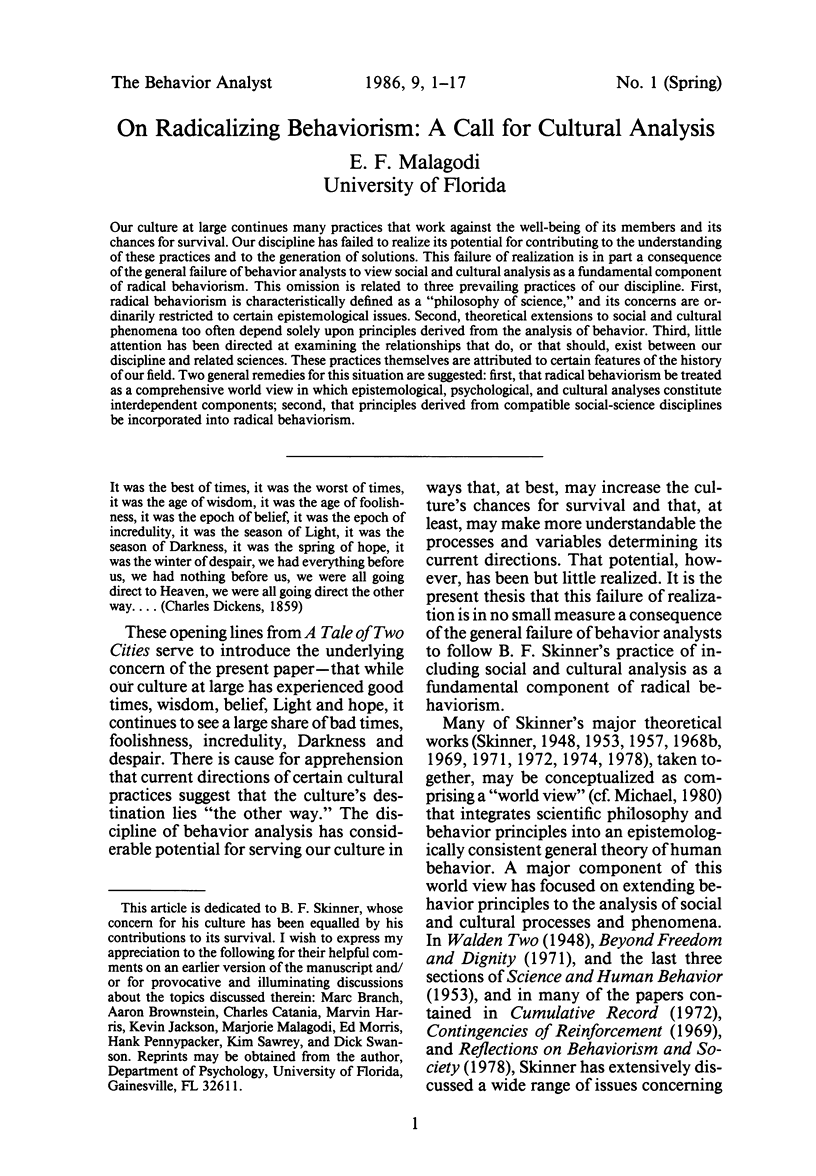
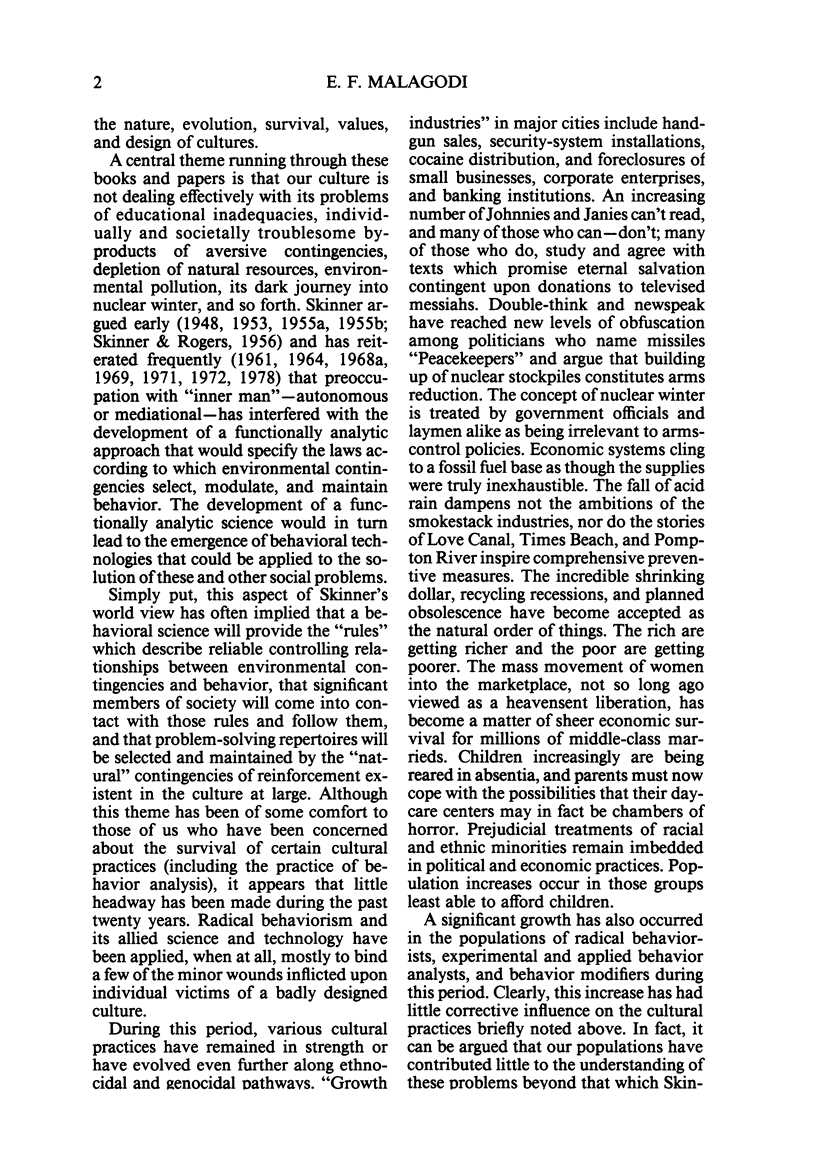
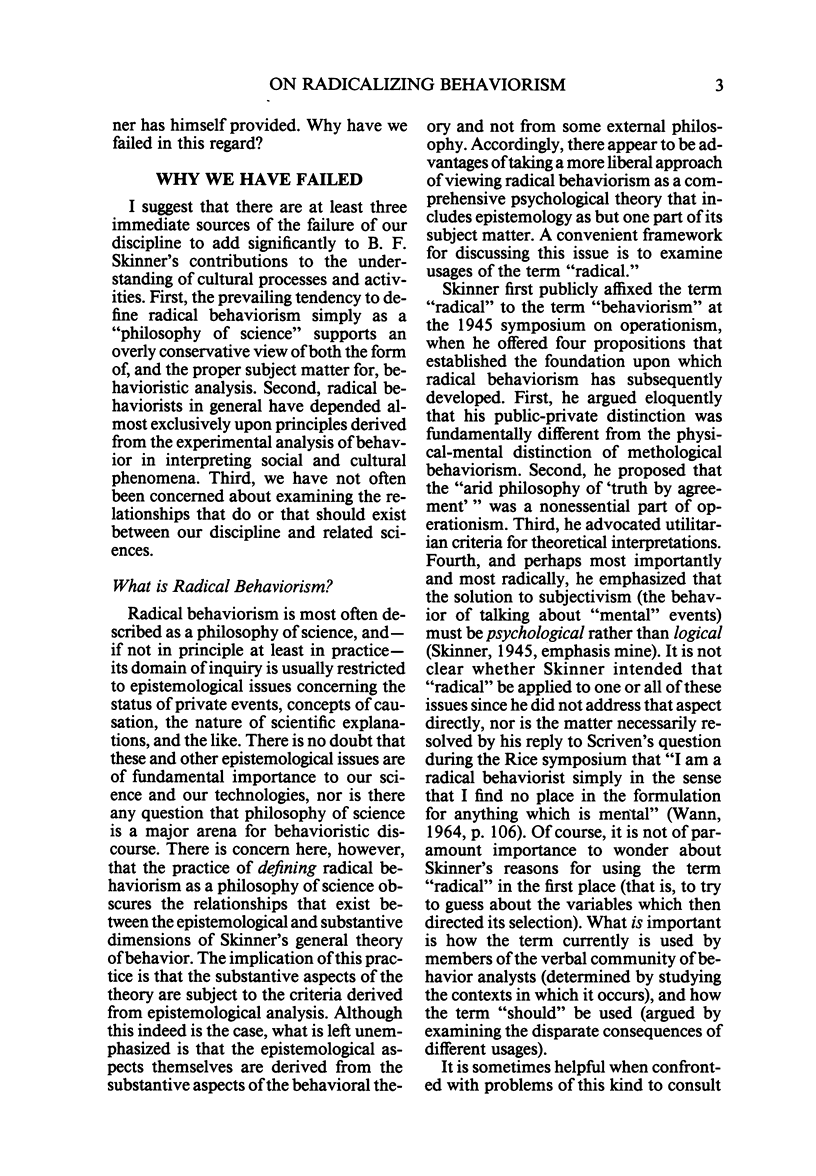
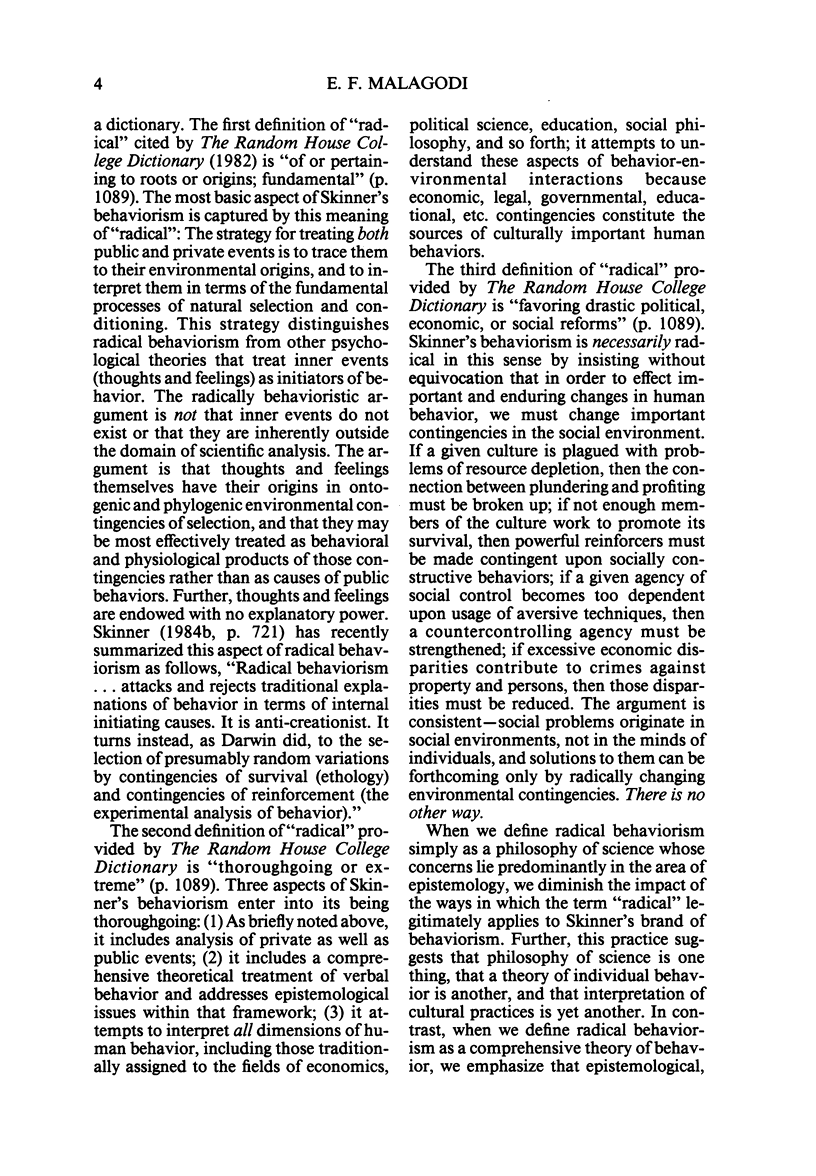
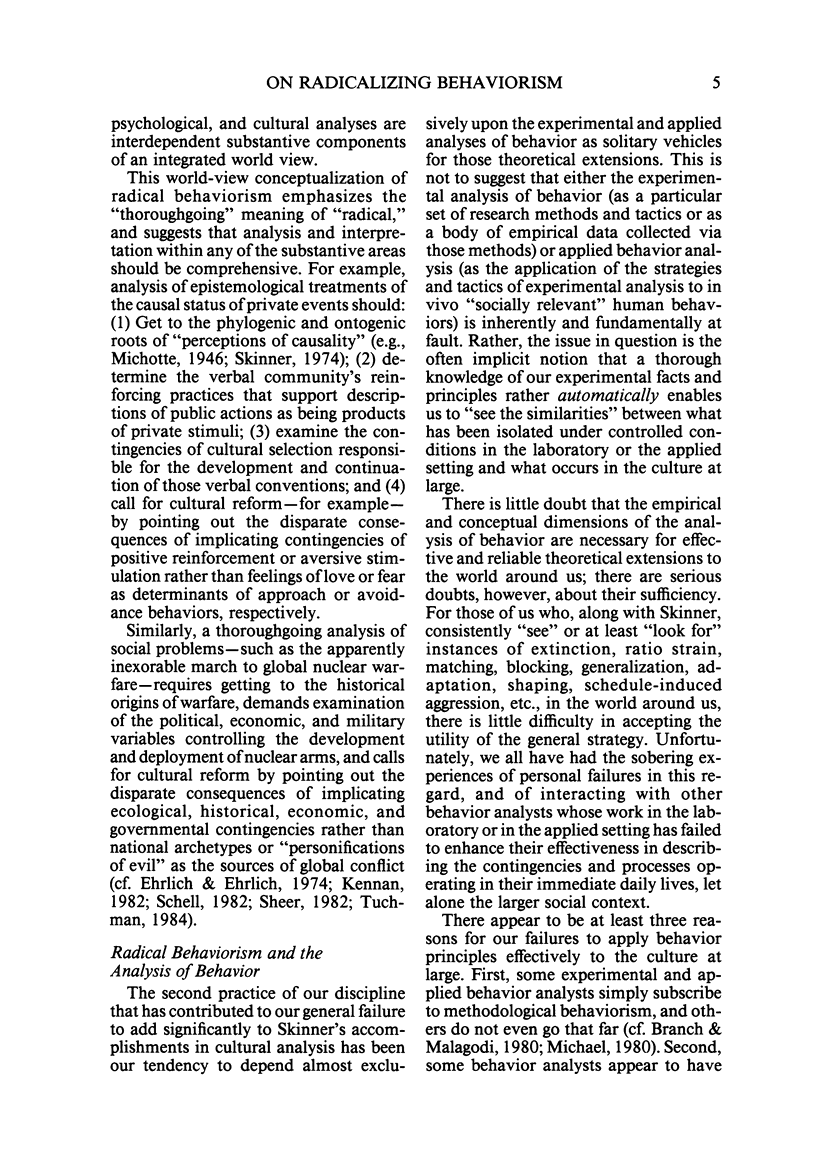
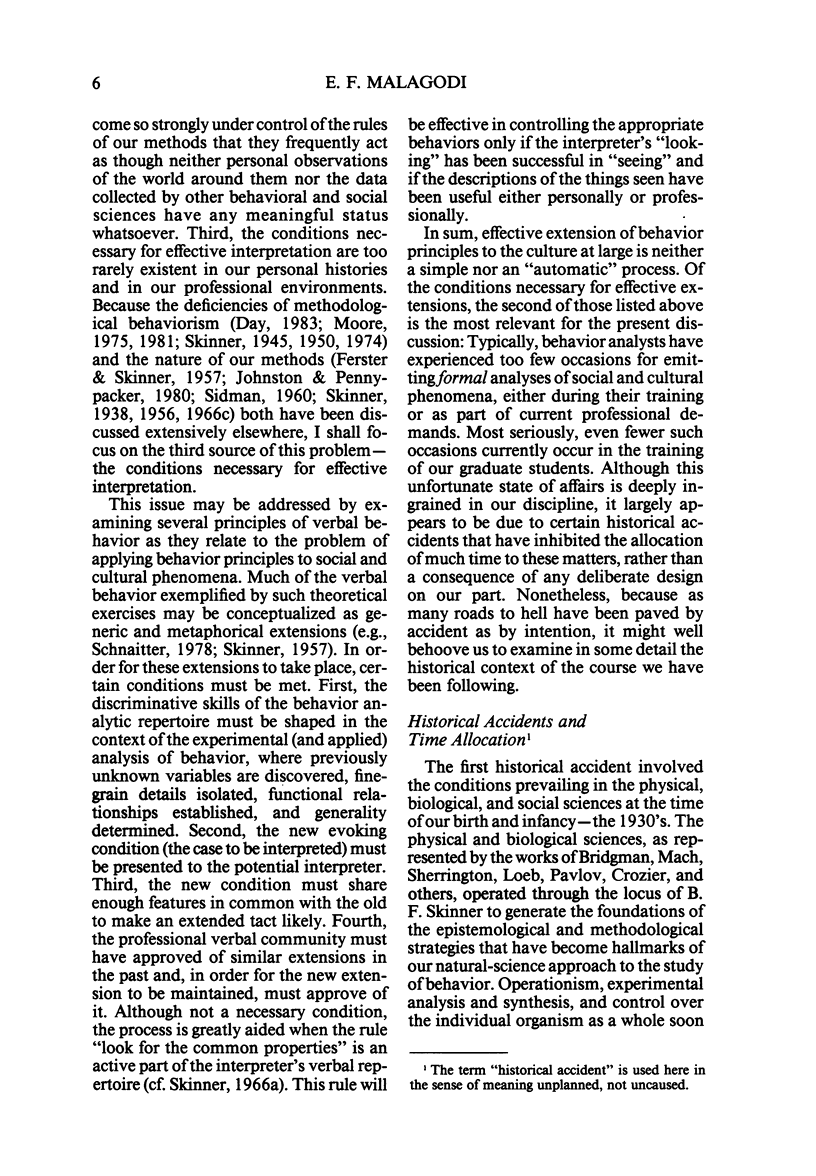
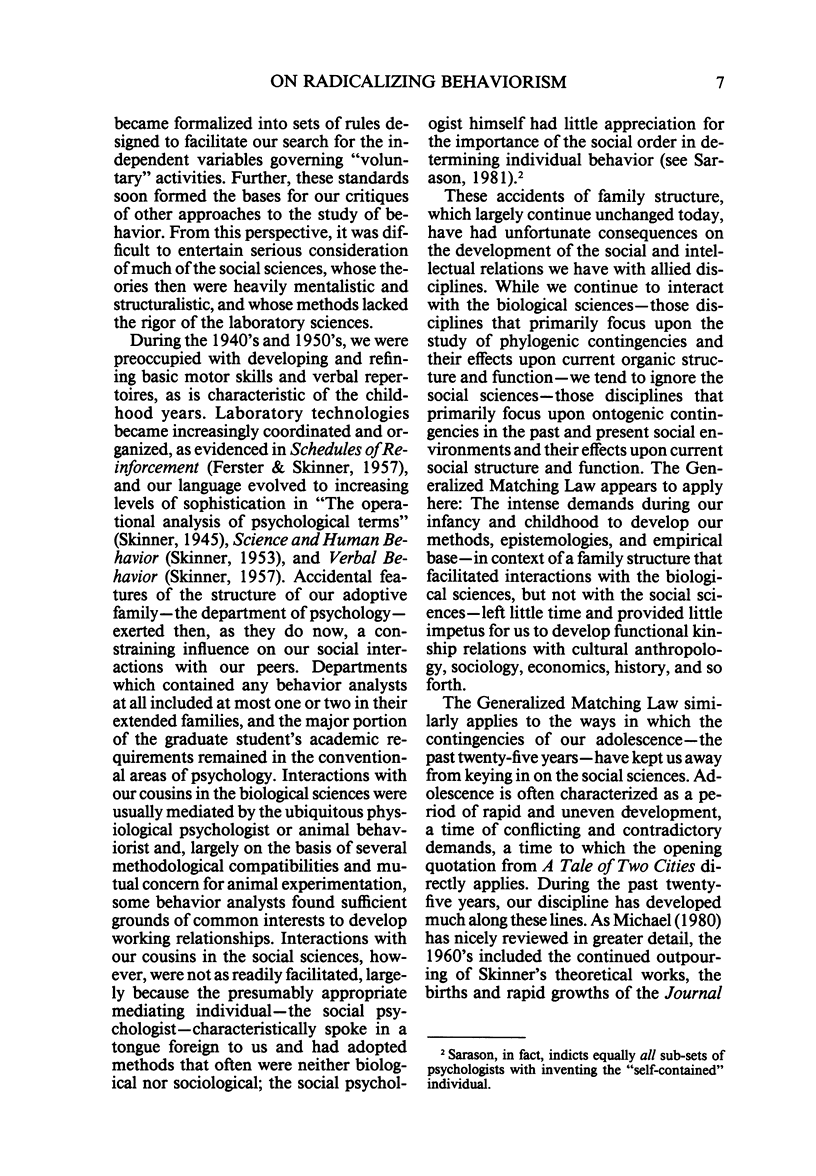
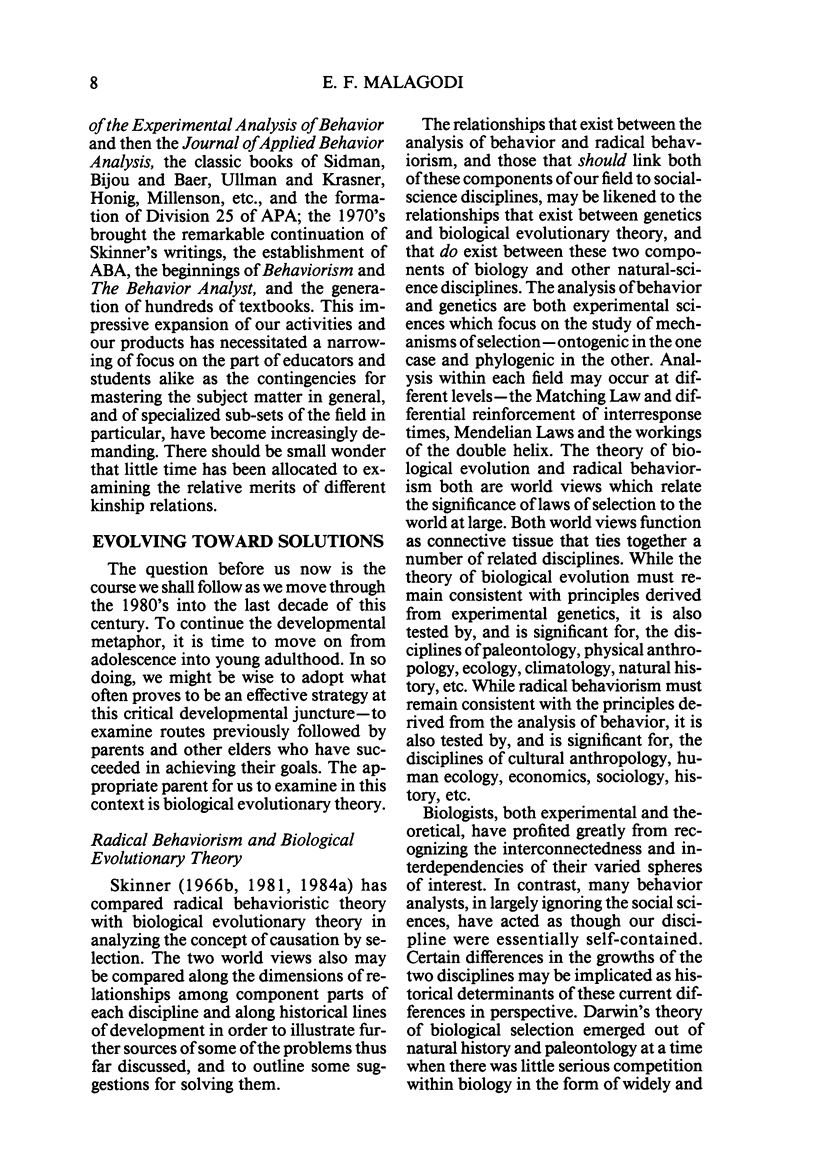
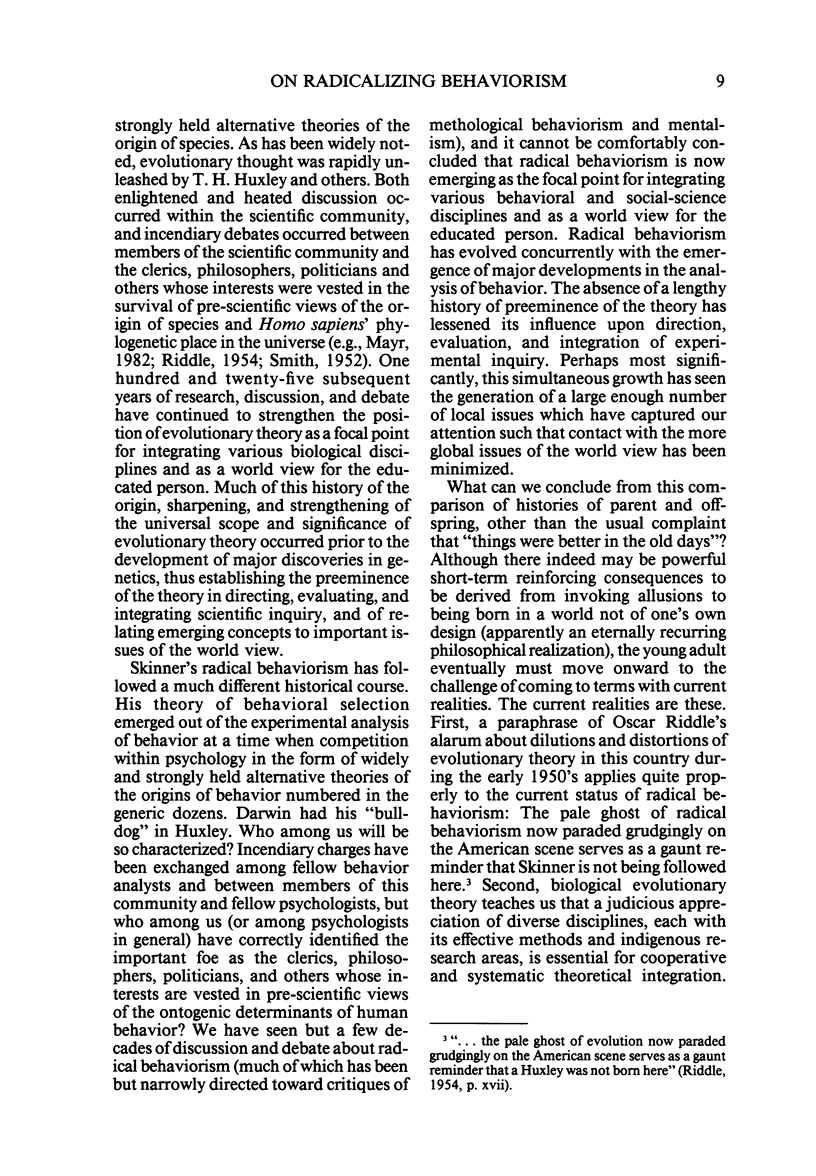
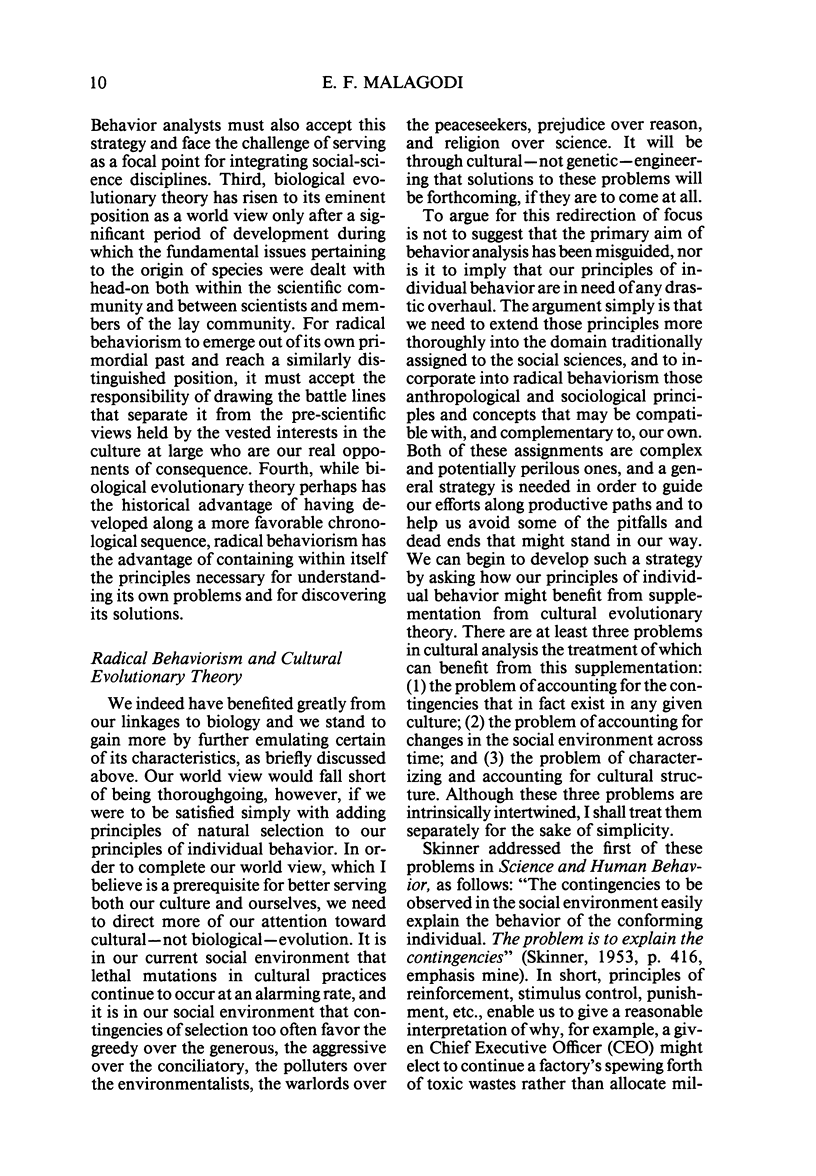
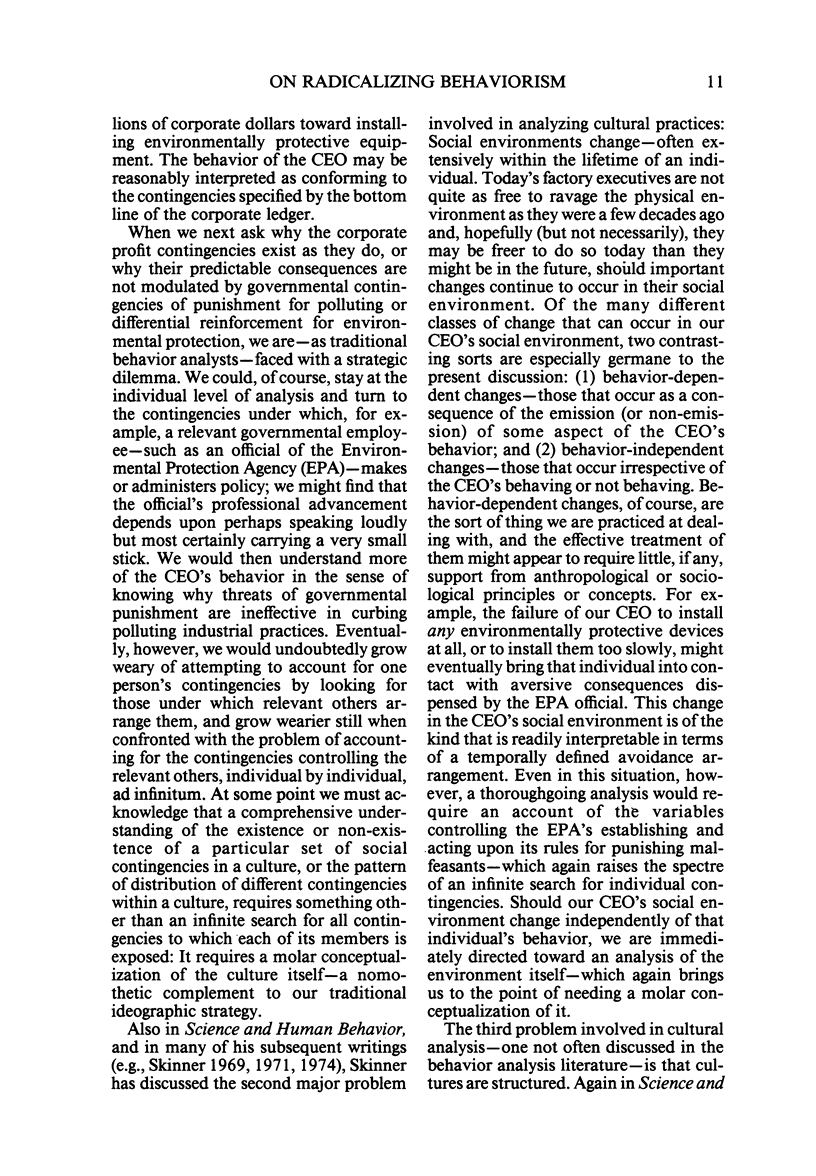
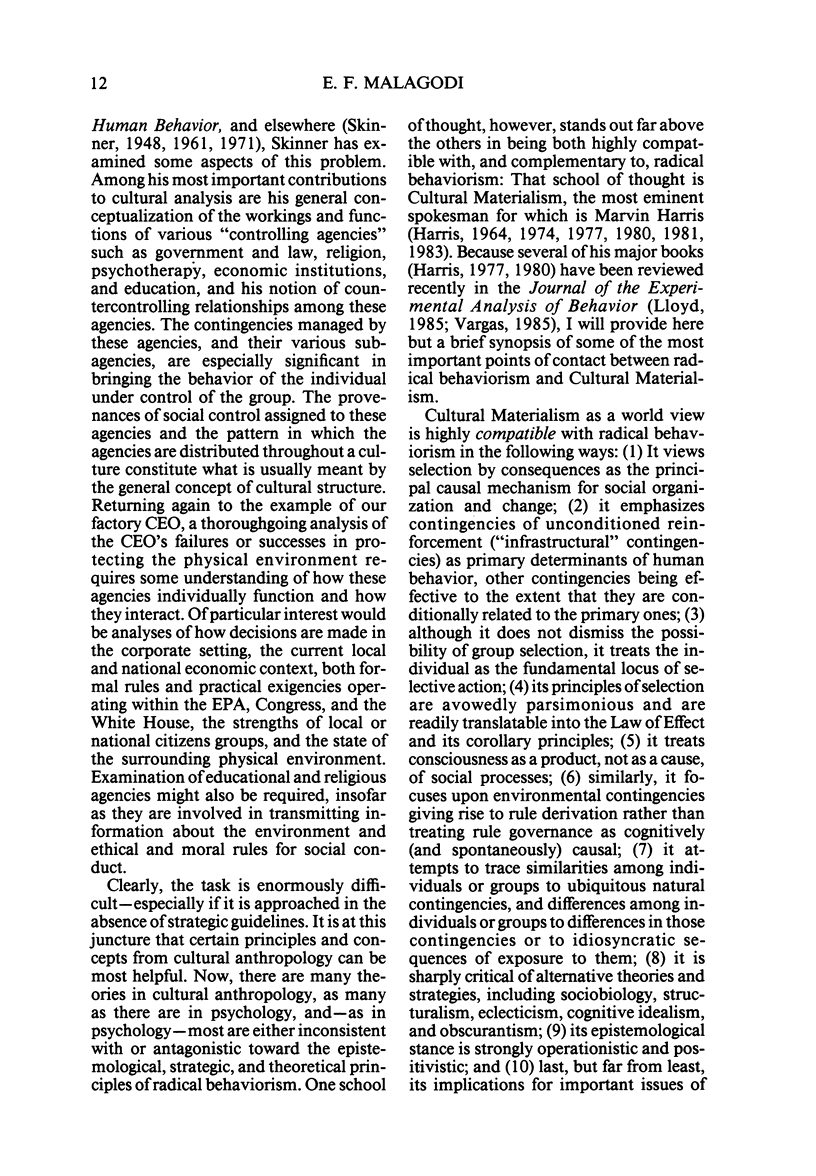
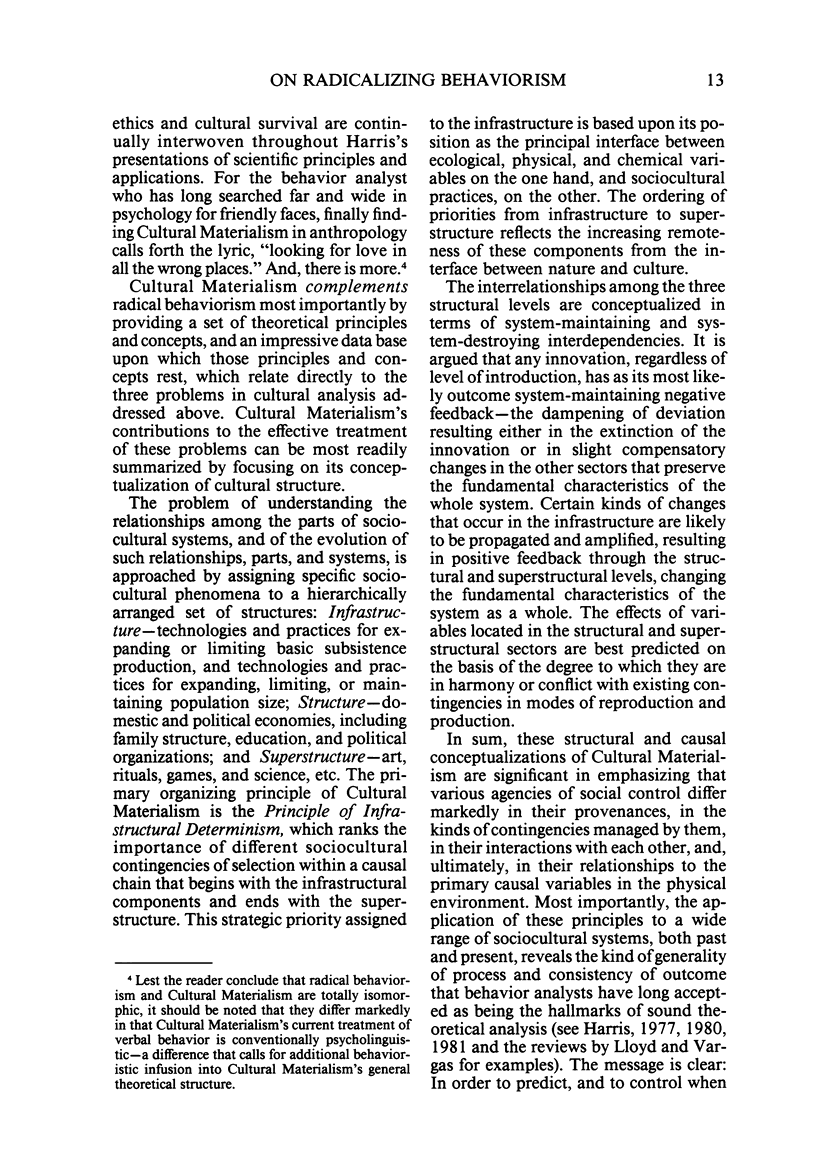
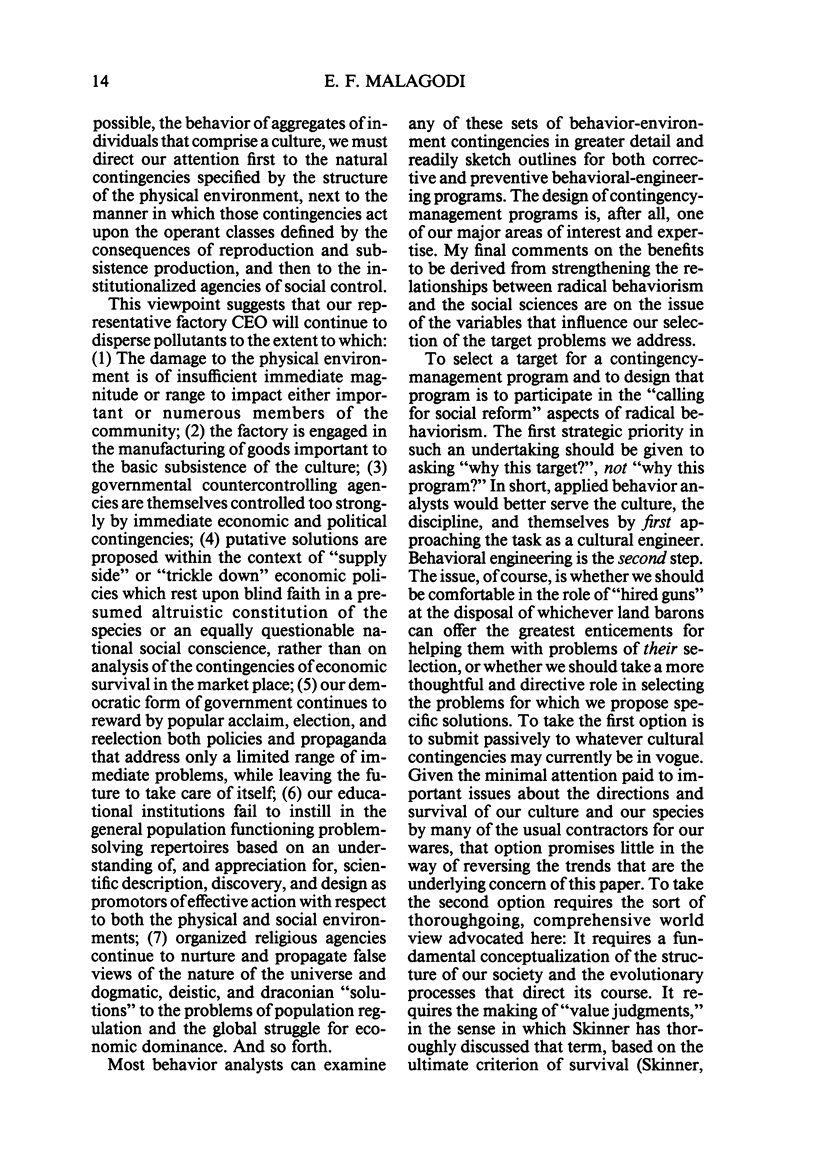
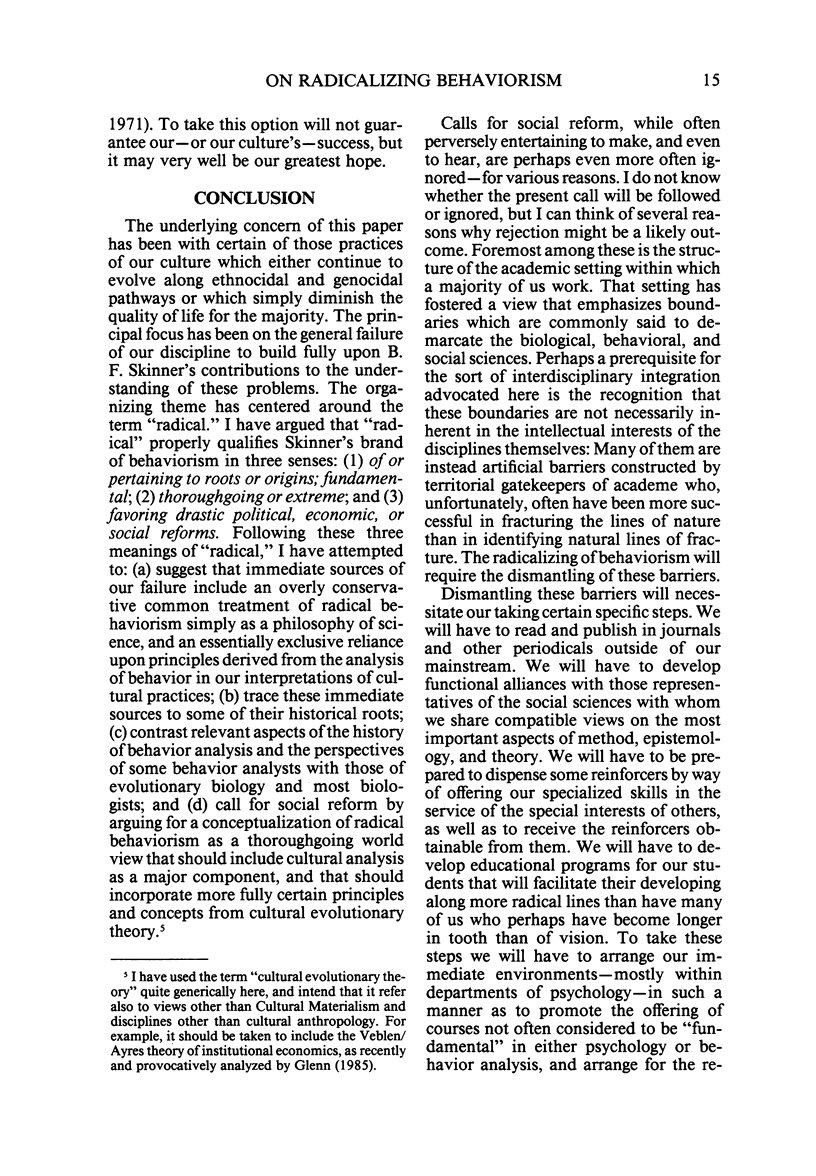
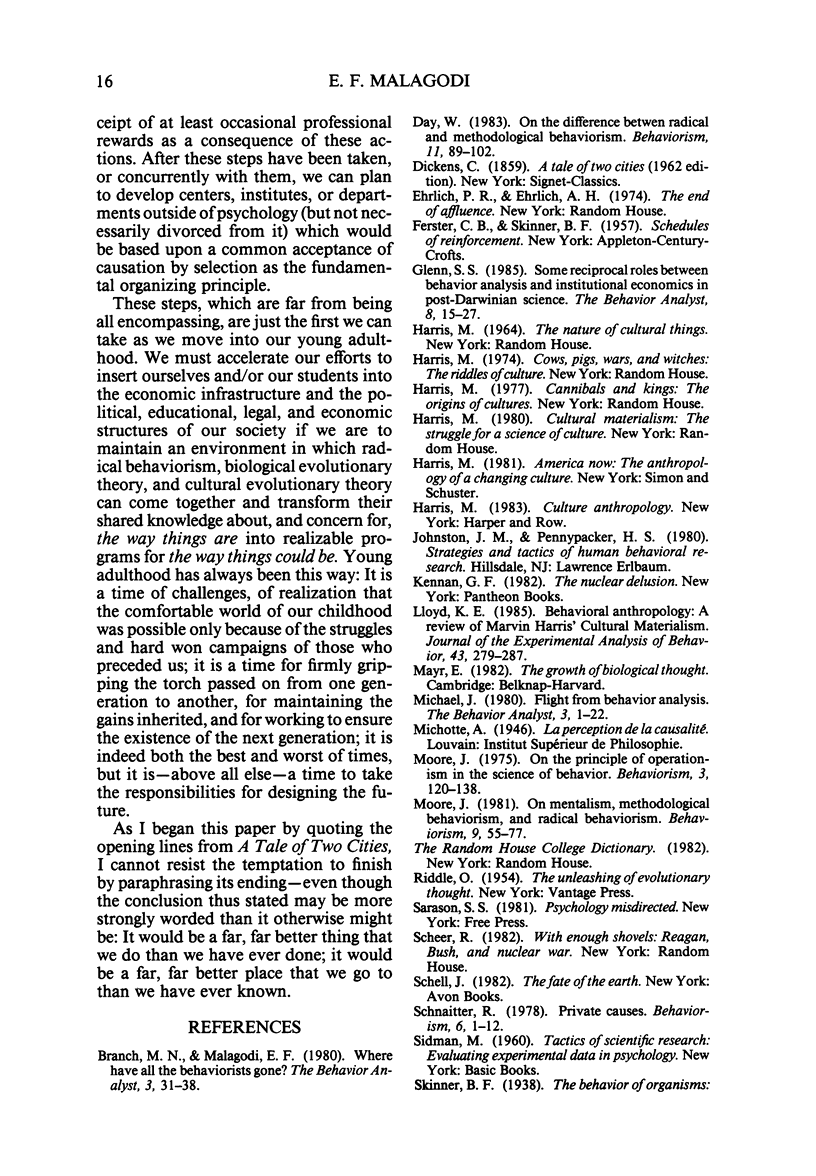
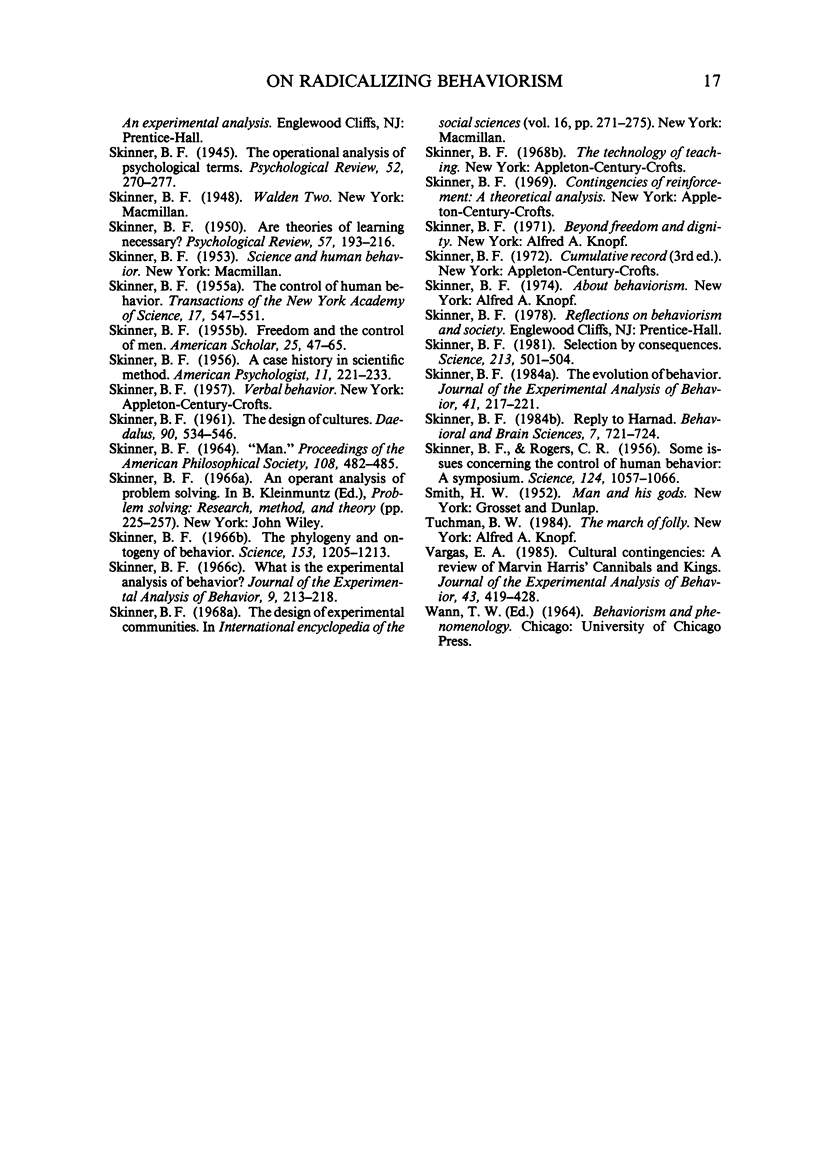
Selected References
These references are in PubMed. This may not be the complete list of references from this article.
- Branch M. N., Malagodi E. F. Where have all the behaviorists gone? Behav Anal. 1980 Spring;3(1):31–38. doi: 10.1007/BF03392376. [DOI] [PMC free article] [PubMed] [Google Scholar]
- Glenn S. S. Some reciprocal roles between behavior analysis and institutional economics in post-darwinian science. Behav Anal. 1985 Spring;8(1):15–27. doi: 10.1007/BF03391909. [DOI] [PMC free article] [PubMed] [Google Scholar]
- Michael J. Flight from behavior analysis. Behav Anal. 1980 Fall;3(2):1–21. doi: 10.1007/BF03391838. [DOI] [PMC free article] [PubMed] [Google Scholar]
- doi: 10.1901/jeab.1985.43-279. [DOI] [PMC free article] [Google Scholar]
- doi: 10.1901/jeab.1985.43-419. [DOI] [PMC free article] [Google Scholar]
- ROGERS C. R., SKINNER B. F. Some issues concerning the control of human behavior; a symposium. Science. 1956 Nov 30;124(3231):1057–1066. doi: 10.1126/science.124.3231.1057. [DOI] [PubMed] [Google Scholar]
- SKINNER B. F. Are theories of learning necessary? Psychol Rev. 1950 Jul;57(4):193–216. doi: 10.1037/h0054367. [DOI] [PubMed] [Google Scholar]
- SKINNER B. F. The control of human behavior. Trans N Y Acad Sci. 1955 May;17(7):547–551. doi: 10.1111/j.2164-0947.1955.tb02820.x. [DOI] [PubMed] [Google Scholar]
- Skinner B. F. Selection by consequences. Science. 1981 Jul 31;213(4507):501–504. doi: 10.1126/science.7244649. [DOI] [PubMed] [Google Scholar]
- Skinner B. F. The evolution of behavior. J Exp Anal Behav. 1984 Mar;41(2):217–221. doi: 10.1901/jeab.1984.41-217. [DOI] [PMC free article] [PubMed] [Google Scholar]
- Skinner B. F. The phylogeny and ontogeny of behavior. Contingencies of reinforcement throw light on contingencies of survival in the evolution of behavior. Science. 1966 Sep 9;153(3741):1205–1213. doi: 10.1126/science.153.3741.1205. [DOI] [PubMed] [Google Scholar]
- Skinner B. F. What is the experimental analysis of behavior? J Exp Anal Behav. 1966 May;9(3):213–218. doi: 10.1901/jeab.1966.9-213. [DOI] [PMC free article] [PubMed] [Google Scholar]


